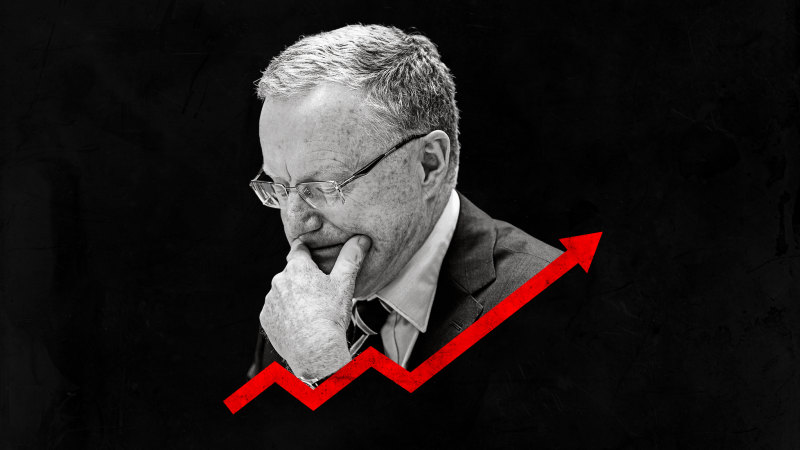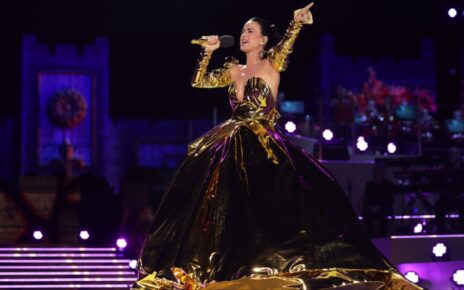Save articles for later
Add articles to your saved list and come back to them any time.
So, you want to be the next Reserve Bank governor?
How hard could it be, you say. Once a month, sit around a big table in a room overlooking the NSW parliament and decide what to do with interest rates.
How difficult could it be?
So, you think you can be governor of the Reserve Bank?Credit: Peter Rae
Welcome to the question facing Treasurer Jim Chalmers who will in coming days decide whether to extend the term of current RBA governor Philip Lowe, elevate his deputy Michele Bullock to the top job or go outside the bank for a new leader.
Almost every man and his dog seems to have an opinion on Lowe who is just the 13th person to lead the nation’s central bank. Plenty have also offered character assessments about the governor and his abilities.
But what qualities do you really need to take the reins of the RBA?
The starting point is to understand what the bank does, and what it is trying to achieve. The Australian economy is directly affected by two policy streams – fiscal and monetary.
Fiscal policy is the preserve of government. This can be through new policies, taxes or handouts. We saw it most closely during the pandemic when governments shut down the economy on health grounds.
Monetary policy is the domain of the Reserve Bank and the governor. This is, usually, the use of interest rates to effectively fine tune the economy’s performance.
During the pandemic we also saw the first use of unconventional monetary policy. This was the creation of hundreds of billions of dollars out of thin air to buy government debt and to lend the cash to commercial banks.
Lowe and the RBA board use monetary policy to get the economy growing fast enough that it generates inflation of between 2 and 3 per cent (something the bank has failed to accomplish for almost a decade).
That means being able to predict how the economy will look in six and 12 and 18 months’ time. As a wise person once said, “It’s tough to make predictions, especially about the future.”
To achieve this, the bank tracks tens of thousands of individual pieces of economic data. It means talking to all manner of people – from business operators to unions – to pick up trends they are seeing in real time.
These titbits may not appear to be “economic”. For instance, the bank has tracked how COVID contributed to an increase in the number of people wanting to live alone (or in a place with more bedrooms), which in turn affected the property market, which in turn has contributed to the rent crisis being felt by many Australians.
Australian households became smaller during COVID. This trend was picked up by the Reserve Bank which has noted its impact on the property market.Credit: Tamara Voninski
It requires keeping on top of international events. That can stretch from the overnight price of iron ore, changes in currency values, economic data from major countries to speeches by fellow central bankers and political leaders.
While plenty of economists try to argue the “science” of their profession, being able to read the direction of an economy requires plenty of intuition. That takes decades of experience.
An important role for the governor is explaining the bank’s thinking about the future direction of the economy and interest rates. This was actually one of the issues that has most exercised Lowe’s critics, given his (faulty) prognostication about the direction of interest rates.
Lowe was not alone in missing the inflation eruption that forced the bank into its most aggressive tightening of interest rates since Huey Lewis and the News were in the charts.
So the governor has to speak often about how he thinks the economy is travelling. At least twice a year he also has to face at a parliamentary committee where MPs jostle to get the governor to either bag their political opponents or support their party’s ideas.
The monetary policy aspect of the bank is just one element of its operations. The bank and the governor also oversee the nation’s payments systems.
That’s everything from the cash in your pocket to the digital wallet on your phone. There’s also the evolution of cryptocurrencies and new forms of payment.
Understanding your bitcoin from your stablecoin is one thing. Trying to get a grasp on how the payment system may change, and what it means to the economy, is a completely different beast.
Philip Lowe is just the 13th person to have headed the nation’s central bank since its inception in the 1910s.Credit: Alex Ellinghausen
Right now, there are debates about the shift to digital payment systems and what this means for possible bank runs.
This “simple” job is not looking so simple.
Adding to the governor’s worries are factors outside their control, both economic and geopolitical. Major economic issues such as Putin’s invasion, the Trump presidency, Brexit, turmoil in North Korea, troubles in the Middle East and the collapse of America’s mortgage system have all had a recent impact on Australia.
When you become governor can also greatly affect your performance.
Economic historians refer to the period between the late 1980s to 2007 as the “Great Moderation” when the global economy ran very, very well and inflation threats were vanquished.
Central banks claimed credit for this success through their judicious use of interest rates.
But that ignores two huge developments outside the control of central banks which contributed to the fall in inflation.
The biggest of those was the rise of China. The world enjoyed the “China-price” for an increasingly large array of goods.
The other was the productivity gains that came from the advent of personal computers into almost every business (and home) across the developed world.
Take China and PCs out of the economic equation and the Great Moderation may never have occurred.
By any measure, lady luck has not been kind to Phil Lowe.
The governor sits atop an organisation of about 1400, often extremely intelligent, people. Many of them have different views about key economic questions.
And whoever continues on as governor has to also deal with the Reserve Bank review which promises major changes to the organisation and how it operates.
You really sure you want the job?
The Opinion newsletter is a weekly wrap of views that will challenge, champion and inform your own. Sign up here.
Most Viewed in Politics
From our partners
Source: Read Full Article






